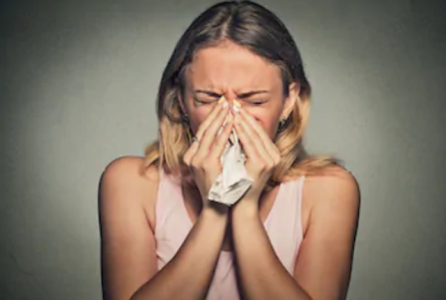 Spring season came upon us early this year in Connecticut, and we’ve been enjoying warmer days. As spring usually comes along with a break, traveling and outdoor activities, we’ve had to put a hold on these ventures because of the recent Covid-19 (Coronavirus) outbreak. With travel bans, toilet paper and disinfectant products hard to come by, you’re probably wondering what’s next? Spring allergy season is in full effect, and If you're one of the millions of people who have seasonal allergies, it also means sneezing, congestion, a runny nose and other bothersome symptoms. But, how does one tell the difference between spring allergies, the flu or Coronavirus? There are many overlapping symptoms! AFC Urgent Care Torrington is here to help answer “is it Coronavirus, Spring Allergies or Flu?”
Spring season came upon us early this year in Connecticut, and we’ve been enjoying warmer days. As spring usually comes along with a break, traveling and outdoor activities, we’ve had to put a hold on these ventures because of the recent Covid-19 (Coronavirus) outbreak. With travel bans, toilet paper and disinfectant products hard to come by, you’re probably wondering what’s next? Spring allergy season is in full effect, and If you're one of the millions of people who have seasonal allergies, it also means sneezing, congestion, a runny nose and other bothersome symptoms. But, how does one tell the difference between spring allergies, the flu or Coronavirus? There are many overlapping symptoms! AFC Urgent Care Torrington is here to help answer “is it Coronavirus, Spring Allergies or Flu?”
What’s the difference between Coronavirus symptoms, allergies and the flu?
Before you start jumping to Coronavirus when someone coughs or sneezes, we first need to rule out allergies and the flu. Let’s break down each illness: Flu: We’re at the tail end of the flu season, luckily, so the likelihood of contracting the virus at this point is slim. Symptoms often include a fever, lethargy, a hacking cough, muscle aches and chills and mucus is usually thick and yellow. Coronavirus: Symptoms of the Coronavirus are fever, cough and an obvious shortness of breath. Symptoms usually appear 2-14 days after exposure. Allergies: Symptoms include itchy, red watery eyes, runny nose, rapid sneezing clear mucus, and sometimes even asthma symptoms.*Symptoms and risks vary from person to person.
The flu and Coronavirus can knock you off your feet
Allergies may make you feel tired, but they're not going to cause severe muscle or joint ache like the flu and coronavirus. Coronavirus and the flu tend to be more systematic. Unlike allergies that affect the eye and the nose, flu and COVID-19 affect the whole body. A nasty case of either of the two may get worse when you expect to get better. There is a possibility that pneumonia or other serious respiratory complications may develop that can be fatal to a high risk individuals like the elderly, pregnant women or young children. Allergy symptoms on the other hand are regularly occurring, and usually mild. But, they are treatable! This is a huge difference. Being that we’ve started an early spring at the same time as a worldwide pandemic outbreak, It is important to identify the symptoms and rule out what it could be so that the treatment process can start.So, is there treatment for Coronavirus, flu and spring allergies?
Remember, flu season is almost over and the likelihood of getting the virus is slim. However, every year we recommend that everyone get their flu shots in October and November in order to last a full winter/flu season. If you’re having spring allergies there are plenty of ways to alleviate and manage symptoms. This can include:- Limiting pollen exposure to limit spring allergies
- Taking medicine early to relieve spring allergies
- Rinsing your nasal passages regularly
- Spring cleaning for your spring allergies
- Natural remedies for spring allergies like vitamin C
- Showering immediately for allergy relief